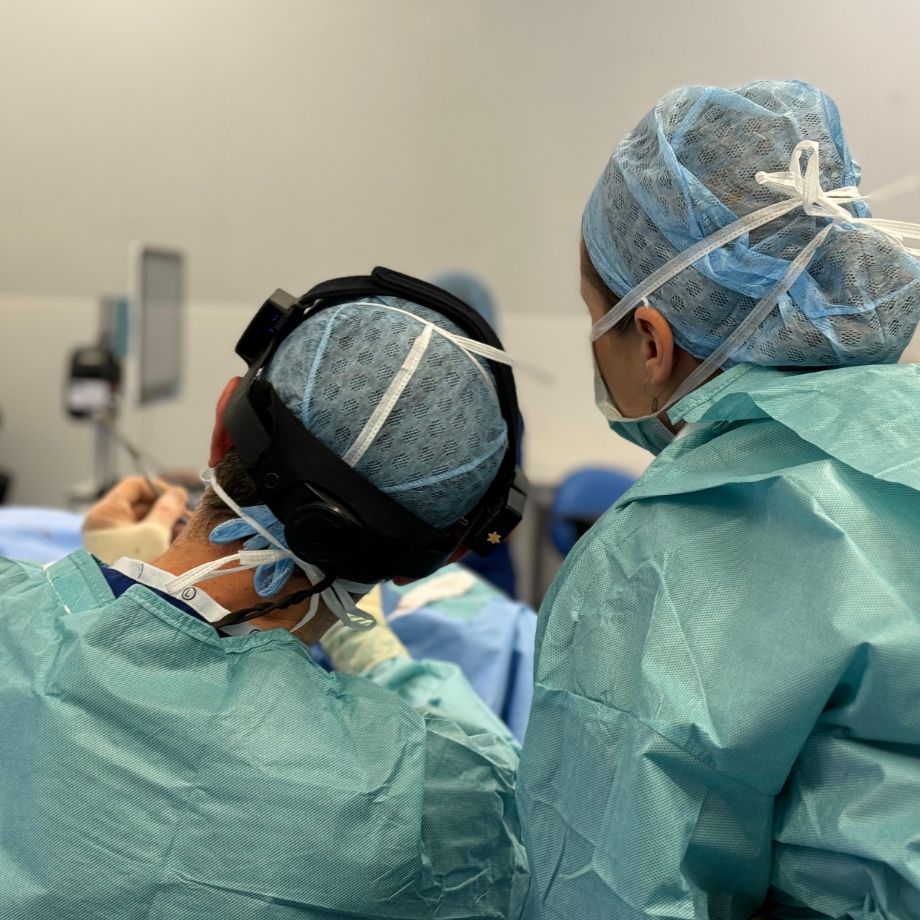Anaesthesia and Pain Relief

For any plastic surgery procedure, there is no need for you to be in excessive discomfort or pain. The avoidance of pain, its relief and general anaesthesia (where appropriate) are vitally important in plastic surgery. This not only relates to the procedure itself but also the period afterwards. Mr Pacifico strives to ensure that you are in the minimal amount of discomfort for any procedure he may be performing – from non-surgical rejuvenation procedures to the most complex facelift or breast procedure.
The term anaesthesia (or anaesthetics) refers to a combination of the relief or prevention of pain and sedation. It may be broadly divided into local anaesthesia (where you are awake) or general anaesthesia (with you asleep). However, sometimes procedures may be performed under a combination of sedation and local anaesthesia (so-called twilight anaesthesia).
Local anaesthesia
For smaller procedures, pain relief is given in the form of a local anaesthetic, usually as an injection (just like at the dentist). This is administered by Mr Pacifico himself and the injection is given at the site of the surgery. The local anaesthetic takes a few minutes to take effect. Once working, it freezes the area preventing any pain from being felt, but it may still allow some sensations of pushing and pulling. The local anaesthetic usually lasts for a few hours before normal sensation returns. Therefore, it is often a good idea to take some tablet pain killers (such as paracetamol) when you get home to ease any discomfort that may occur when the anaesthetic wears off.
General anaesthesia
For more involved surgical procedures, a general anaesthetic is required (given as TIVA – Total Intravenous Anaesthesia – all through a drip line, and no anaesthetic gases). This is always administered by a consultant anaesthetist. Mr Pacifico works closely with a first class team of anaesthetists, experienced in anaesthesia for aesthetic and reconstructive surgery, who always ensure the highest standards of care.
Your safety during surgery is paramount, therefore, should you need a general anaesthetic, you may need to be reviewed in the hospital prior to the date of surgery by the pre-assessment team. They will liaise with the consultant anaesthetist regarding any findings and relevant blood tests. You will also be seen by the consultant anaesthetist prior to surgery. If you are generally fit and well, and the procedure is not considered extensive, you will be seen on the morning of surgery (or around midday if you are on an afternoon operating list). Otherwise, it may be necessary to organise an appointment prior to the date of surgery.
Your consultant anaesthetist will see you through the operation itself, care for you throughout the procedure and into the recovery period. They will also optimise your pain relief and comfort after surgery. He or she will also be on hand should any emergency treatment be required to maximise your safety.
If you are having a general anaesthetic you will need to be fasted (have no food) for 6-hours before the procedure. That often means nothing after midnight from the night before surgery, but if you are on an afternoon operating list, you may be able to have a light early breakfast at 6am.
Your medication
Please continue to take your usual medication unless instructed otherwise. An exception to this will be blood thinning drugs, such as aspirin or clopidogrel. Please discuss with Mr Pacifico what instructions need to be followed if you are on any blood-thinning agents.
For further information about the anaesthesia related to a particular procedure, please refer to the individual procedures.
Another useful link to visit is the Royal College of Anaesthetists
